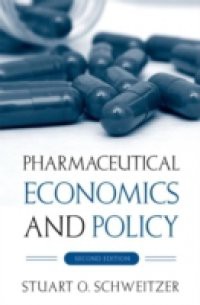The pharmaceutical industry is praised as a world leader in high technology innovation and the creator of products that increase both longevity and quality of life for people throughout the world. At the same time, the industry is also criticized for its marketing and pricing practices and for its apparent anticompetitive responses to generic competition. Even its research and development priorities are criticized as being too closely driven by the goal of maximizing shareholder value, rather than the health of the public. Unfortunately, many of the critics of the industry fail to understand the complexities of the industry and its role in the nations healthcare system. This book uses the tools of economic analysis to explore the conflicting priorities and aims of the pharmaceutical industry, from both an American and worldwide perspective. This is the second edition of a uniquely comprehensive and balanced discussion of pharmaceutical policy issues. All the chapters of the former edition have been fully re-written and extensively updated. In addition, the book includes six new chapters on emerging topics such as the broadened role of FDA regulations and the increasing diversity of the industry. An entire chapter is devoted to the biotechnology industry and one to alternative medicines, often called nutraceuticals. Another new chapter discusses segments of the industry that specialize in particular activities including generic drugs and drug delivery systems. The recent controversial expansion of Medicare to cover outpatient drugs is discussed in depth. The introduction is also updated to address the volatile pace of pharmaceutical innovation and how the pharmaceutical industry has responded to the emergence of managed care.

